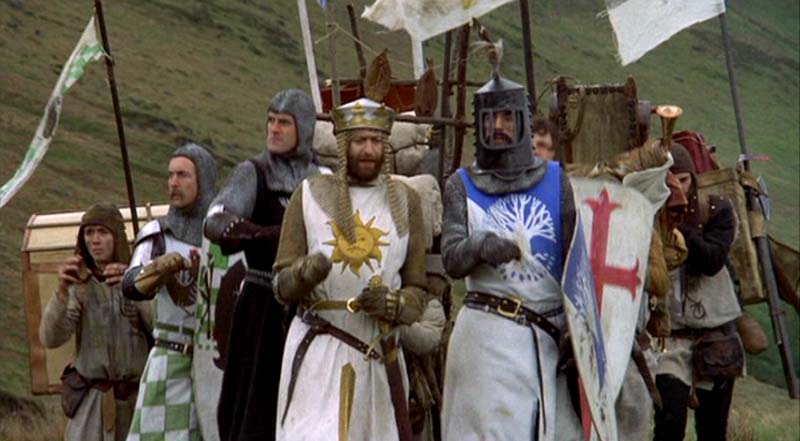I recently had the opportunity to attend NBC’s Education Nation Summit in downtown Phoenix with a group of teachers from my school. You might have seen me on TV; I was the guy one day removed from the stomach flu whose skin tone matched his grey suit. But I, and those sitting near me, came away unscathed. The anchor’s comments, however, did get me thinking.
We sure talk a lot about talking.
At the end of the town hall, NBC host Rehema Ellis thanked us for our attendance on a busy Saturday, but cited that it was exciting to see us, “beginning to have the difficult conversations in education.” This, I’ve concluded is code for, “Nobody in this room is really going to do anything, but let’s pretend we will.”
Remember that famous scene in Monty Python and the Holy Grail, where the guards at the gate of the castle see a knight charging on foot at full gallop, yet not actually getting any closer?
Yeah, it’s kind of like that.
In America, talking heads will tell you that it’s important to begin to have the difficult conversations about mental health. That we need to begin to have the difficult conversations about entitlement reform. That it’s time to begin to have the difficult conversations about modifying the tax code. Well, you get the picture. None of these issues are even close to the reform they so desparetely need and beginning to have the difficult conversations is what people suggest when they aren’t interested in actually trying to do anything. Or, they sense that the challenge is unsurmountable due to partisanship, differing idealogy, or political fallout. I’m pretty sure that education is trapped in the webs of all three.
I’m also confident that Rosa Parks didn’t begin to have the difficult conversations about bus seating.
At some point, could we actually do something? Anything? We encourage teachers to take risks in the classroom, yet, as a profession, very few want to take that precarious first step.
Perhaps there is hope. Monty Python fans might remember how the aforementioned scene ends. After seemingly going nowhere, the knight that had been simply running to stand still, somehow covers the entire field in a blink, slays the guards, and successfully storms the castle.
I’m certainly not advocating impalement. But it would sure be nice to stop applauding ourselves for considering the potential for involving ourselves in considering thinking about the difficult conversations.
Maybe it’s time to propose, try, advocate, or challenge. Maybe it’s actually time to do.









